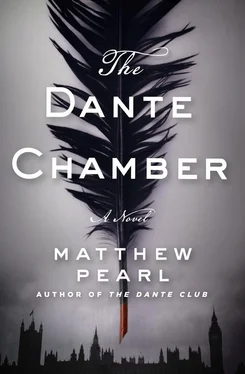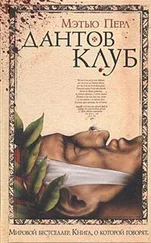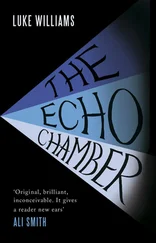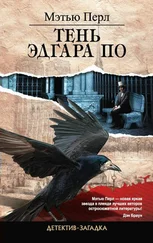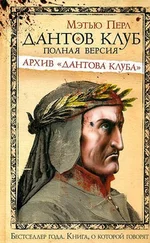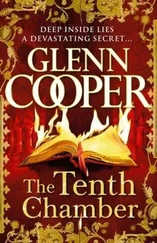Maria and Christina, who put her poetry aside for neither the first nor last time, both sought work as governesses to keep them from starvation; Christina also helped copy out the New Testament for a new edition until her fingertips bled from calluses, their mother worked as a teacher, and William picked up extra income outside his clerical job when he could. Gabriel, meanwhile, would wander around museums and galleries for inspiration, remarking that he was in too lively a poetry phase to waste himself on menial work. He was his father’s son.
In the professore’s final years, when he was an invalid, he was hardly able to move from that desk where as children they believed he conjured his friend Dante. He wore a visor to prevent light from hitting his face and insisted the curtains remain closed. “I am so tired of life that I shall bless my death when it comes. I wish to die, but God will not yet concede me the great benefit.” His shrunken, bent form was wrapped in a dressing gown in the bed where he died.
The Age of Death.
Dante’s power over her family destroyed the professore and — if her supposition that this had been the reason Gabriel was taken proved correct — Dante was destroying his namesake. This time, though, she had been blessed with a chance to stop it.
At the banquet in the opera house following the performance, Christina could tolerate no more. It was some form of punishment to be forced to observe moral decay disguised as amusement. She took another look at the young women nearby, some throwing their arms around men, others leaning on shoulders or holding court with two or three admirers at once. That was it — the performance and its gaudy costumes had already shaken her; she could not stay a moment longer.
Over the last weeks, she’d become accustomed to justifying her deceit toward others for the sake of finding Gabriel. For example, to pretend that she had not known Holmes and Browning were present when the zealous man from the opera company brought them to each other. But to descend into this elegant debauchery! She thought of her sister, Maria, in her convent while Christina stood here. Here!
As a young girl, Christina admired the liberated, eccentric set she encountered at her parents’ dinners more than she cared for the handsome, well-dressed people. She most envied those who roamed London freely at night. When she discovered the ways of God through her mother’s strict Anglican Church, however, she knew her path, however far out of fashion it fell. Many people blossomed as they moved into adulthood, but not Christina. She retreated to safety. In this way, she felt herself join with the poet she had tried to run away from her whole childhood: Dante Alighieri. According to Boccaccio, Dante had been a noisy and social boy, then somber and lonely as a man and as a poet. He had found a higher calling that had to be preserved and protected. He became impregnable.
That was a word to which Christina aspired.
She fled outside to the front of the opera house, into the cold night air of busy Haymarket. Every rattling coach and strolling couple invoked judgment against her.
She could almost hear William chide her with what he had been thinking during this whole affair of Gabriel’s disappearance: Where did you expect to end up, when you decided to follow Gabriel down his path of darkness and selfishness? Where else, but where you utterly despise?
She pulled her scarf tightly around her neck. Slender Christina felt chilled with the slightest breeze. She would not acknowledge it to anyone, but it was one of the reasons she almost never left her house after dark.
Standing out in the cold night brought memories of one of the last times she had seen Gabriel before he disappeared. He had turned up without warning during the night at Euston Square and called to Christina’s window. She ran down the stairs before his shouts could wake their mother.
“I saw her today,” Gabriel confided to Christina in the garden. The expression on his face was an odd mix of euphoria and fear.
At first she thought he meant he had met someone, maybe a woman who could take his mind off his torments. She was about to ask her name. Then she worried he meant Lizzie herself. A mirage, a ghost, a phantom, as had plagued him in the dismal days he’d heard murderer echo through empty rooms.
“It was at Highgate.”
“The cemetery? You visited her grave?” Christina asked, deeply concerned. That was the worst place for Gabriel to go to preserve his mental state.
“William took me,” Gabriel had said, so hastily that it did not sound entirely truthful. Then he smiled. “Her hair is like the sun, Christina, and runs down her back like a cape. Oh, dear sister.” He took both of Christina’s hands in his. “What would it mean to be blessed with a new light? ‘So that all ended with her eyes, Inferno, Purgatory, Paradise.’”
Christina recognized the verse from one of Gabriel’s sonnets on Dante that he had buried with Lizzie. She had half expected him to forget the poems that he had put under the ground. “Remember, Gabriel, remember Father thought everything was to be found in Dante, and he ended with nothing.”
“Don’t you see, Christina? We Rossettis will always be prisoners trapped between Dante and Beatrice.”
She tried a different tack: “You ought to stay away from Highgate, Gabriel.”
“You know how I am, Christina,” he said, suddenly pensive. “What I ought to do is what I can’t do.”
The memory broke down as Christina heard her name called out from the doorway of the opera hall. She expected Browning or Holmes had followed her out to reproach her for leaving. Preparing to stand her ground, she turned to see Charles Cayley.
“Miss Rossetti,” he said shyly in his nasal voice, unconsciously frowning at his attempt at a formal outfit as though seeing it only now through someone else’s eyes. He wore a rumpled shirt with no collar and a shabby tailcoat. “I thought I wouldn’t find anyone to speak to here. I grew rather tired standing in the corner alone.”
“What brings you to an affair such as this, Mr. Cayley?” She regretted her accusatory tone, absurd considering she was there, too.
Cayley paused for a long time, as he tended to do when asked even the simplest question, then explained that the opera company had engaged him to translate some of the more obscure German lines of the production so the singers could understand their scenes.
“It is a little pocket change to help finance my latest translations of Dante and Homer,” he added, turning red at his own mention of money. “Excuse me if I seem unable to put one foot in front of another here, Miss Rossetti. It is not my usual environment, nor the clothes.”
“Count me in that same category.” In fact, Christina had worn her usual dark, plain dress, refusing to make a show of herself.
“Has Gabriel been back home?” he asked with a smile. Cayley was always on the verge of smiling, as though appreciating a joke only he was hearing. “I would imagine he is the only one alive who could persuade you to come.”
Christina started to speak, then simply shook her head.
“Well, I suppose he will be armed with some good stories whenever he returns to London from... wherever it is. Miss Rossetti...” He was about to ask a question before he stopped himself. “I remember Gabriel’s hearty greetings when I first knew your family, when I would come to study at your father’s feet. The professore adored you all; I fancy you helped him forget his exile. And I remember first seeing you.”
“Do you, Mr. Cayley?” The idea shocked Christina more than she could have explained.
After another of his pauses, he exclaimed: “Certainly! A slight, murky-eyed, lovely little girl standing at a narrow desk, with a profile made dark by the winter light coming in, composing industriously, never looking over at me, not even once, as though I were a figment. Then, another evening, your father invited me to come back for dinner, and I looked forward to being able to speak to you. You were reading in your room, and never came in. I always wondered if you even knew there was a visitor.”
Читать дальше
